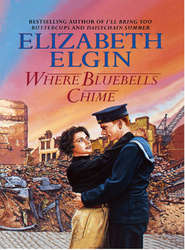По всем вопросам обращайтесь на: info@litportal.ru
(©) 2003-2024.
✖
Daisychain Summer
Автор
Год написания книги
2019
Настройки чтения
Размер шрифта
Высота строк
Поля
‘No. Far, far better. Last evening my brother returned safely to England and we all laughed and cried and hugged and kissed. Mama is so happy.’
‘He’s back? Then be sure to tell the countess how very glad I am.’
‘I think you may tell her yourself. She intends to call on you tomorrow or the next day, she said, and give you her good news. You will not spoil it for her? You will be suitably surprised – yes?’
‘Not one word will I breathe,’ she beamed, happy beyond words. ‘And when she calls, might I hope you will be with her?’
‘I shall visit, I thank you. Now, you see, I am permitted to take off my black clothes, though Mama still wears her mourning – for Vassily and Papa, of course …’
‘I shall look forward to your coming. Is your brother well? Were things bad for him, in St Petersburg – oh, your mother told me about it, never fear,’ she hastened to add.
‘He came back safely – and successfully – though doubtless you will hear of it, soon. But Igor is safe, now, and we will try to start living again!’
‘Of course you will! And you, my dear – you’ll be getting married?’ Clementina hesitated. ‘When the countess is out of mourning, that is …’
‘I fear not.’ All at once, the dark eyes were sad. ‘My marriage money, now, is much diminished – and besides, no one has spoken for me though Mama says I am old enough.’
‘And how old would that be?’
‘Nineteen – soon …’
‘Then you must hope. You are very beautiful and that will more than compensate for your dowry. The solution is simple. You must insist upon a wealthy husband! Forgive me, I beg you, for saying so on such a short acquaintance.’ A husband like Elliot, perhaps? All at once, Clementina decided that no other but Anna Petrovska would do. She was the answer to all her prayers. The girl had beauty and breeding and was not so well-heeled, it would seem, that she could afford to be over choosy. And she, Clementina, had the brass. She had a money tree grown tall and thick from a seed planted by Mary Anne Pendennis! ‘And I do so hope I may have the pleasure of receiving you, very soon.’
Clementina knew when to end a conversation. She smiled a goodbye, stumbling in her eagerness to get to the telephone and call Pendenys Place.
‘Edward!’ she gasped when finally her husband lifted the phone. ‘Tomorrow! I won’t be home! I must stay here a few more days!’
‘What is it, Clemmy? You sound quite upset. Has something happened?’
‘Happened? Everything has happened! Oh, I do believe things are working out, at last!’
‘Are you all right?’ Working out? What bee had she got in her bonnet, now?
‘I am perfectly all right! Will you tell Elliot to telephone me back – at once!’
‘I’m afraid he’s in York – a visit to his tailor.’
‘Damn! Well, the very minute he gets back, tell him to get himself down here! Train or motor – I don’t care which. But I want him at Cheyne Walk by ten in the morning – and no prevaricating!’
‘But what if he has other plans?’
‘Then he’d best cancel them. And if he starts making excuses, just say, “Allowance” to him! Now don’t forget, Edward. Ten o’clock tomorrow! Perhaps it’s best he should get the overnight train. Either way, I want him here!’
Edward Sutton was given time to ask no more; the click of the receiver put paid to that. But no matter, he shrugged. He would telephone again tonight when hopefully his wife was calmer.
He reached for the bell-pull. Best order his son’s packing to be done, for Elliot would do as his mother ordered. Any mention of his allowance usually carried the veiled threat of cancellation and commanded instant obedience. It was the only thing, Edward considered with relish, that could bring his wayward firstborn to heel – apart from a good thrashing, that was, and no one yet had dared to give him that. Only the gamekeeper, and that hadn’t been half hard enough, he thought with regret.
He turned his thoughts to his wife. What in heaven’s name was she up to, now?
Tom Dwerryhouse walked the game covers, his dogs at his heels. He had schooled them from brash, bouncy pups to obedient retrievers. They were a fine pair; would work well when the shooting began in October. Until then, it pleased him to see the covers so well stocked with game. This year, Mr Hillier would have the shooting he so looked forward to.
He was a decent employer, Tom conceded, understanding that the keeper had yet to be born who could conjure up instant sport when an estate had been left to neglect over the war years and everything that ran or flew taken by the soldiers to eke out their rations.
He’d had to start from scratch, yet now he had good reason to be satisfied with the young birds in his rearing field. Plump and fine-feathered, they would be turned out before so very much longer to join last year’s rearings.
He squared his shoulders, lifted his chin with pride. Before so very much longer, Windrush shoots would be the talk of the county – he would see to that – and it made him wonder if now wouldn’t be the best time to bring up the matter of an assistant. Soon, the night patrols must start. With the coming of earlier darkness the poachers would be out. Not, Tom accepted, that the one-for-the-pot man was all that much of a nuisance. That kind of poacher took one or two birds only, easily hidden beneath his coat, his need to feed his family far outweighing the risk of being caught and brought before the Magistrates.
It was the organized gangs from the towns a keeper feared; those who took birds by the score. That, Tom said, was greed and not need and the time was not far distant when he would have to talk to Mr Hillier about taking on another man.
He grinned, suddenly, remembering Daisy and the smile she had given him that morning. Her very first smile, and for him! Not wind, Alice assured him solemnly, and before so very much longer they would hear her first chuckle, she had promised.
He was a lucky man. The country was plagued with the Irish troubles, with unemployment and the workhouses full of decent men, tramping the roads begging, almost, for a job; any job. And where were the homes for heroes those fighting men had been promised, once the war was over? What wouldn’t so many of them give for a house such as his? He shivered. Someone had just trailed an icicle the length of his backbone – or was it that someone had just walked over his grave?
It was neither. It was a feeling of sudden alertness; the scent of danger primitive man must have known. It had served Tom well on those forays into No Man’s Land and he had obeyed it without question. He spun round, aiming his shotgun at the bush.
‘Come out. Come out slow …’ he hissed.
There was a rustling and a voice said, ‘All right, mister.’ Two hands appeared in a gesture of surrender, then a face; white, thin, full of fear.
‘Out here …’ Tom took a few steps backward. The man straightened himself.
‘Don’t shoot, sir?’
‘I won’t. It isn’t loaded.’ Tom lowered his gun. He didn’t need to threaten. He could take the man with one hand behind his back. Skin and bone, he was. ‘After game, were you? This is private land!’
‘Not birds, sir. Had a couple of snares down, for a rabbit …’
‘Got bairns, have you?’ Poor devil. A square meal – one like Alice cooked – would send his stomach into cramps, by the look of him.
‘One little lad. At home, with the wife.’
‘And where is home?’
‘Near Camborne – Cornwall. She’s with her mother. Had to leave her there. No work, see.’
‘So you’re tramping – looking for a job?’
‘That’s it. But who’ll employ a man with a badly foot? I was a keeper myself before the war, but who wants a lame keeper? You should know the walking that’s got to be done.’
Tom knew – especially now. He’d been wondering about another keeper, he thought wryly, and one had popped out of the bushes in front of him, though one who’d be little use to anybody!
‘I know,’ he said. ‘And what’s to do with you, then?’
‘Wounded in the war. My foot. Two toes gone. Makes it awkward, when it comes to walking.’
‘Then how come you’re damn-near starving? What about your pension? The Army gives pensions to badly wounded men.’
‘Pension? You don’t get one of them when it was your own doing – or so they said!’











